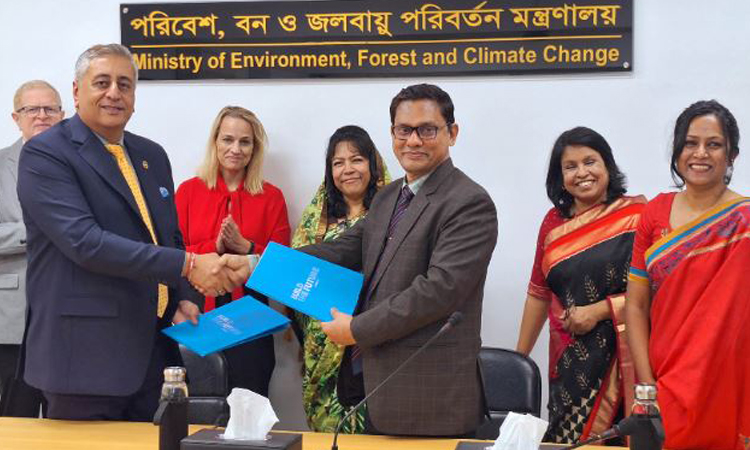News Flash
News Flash

DHAKA, Feb 12, 2025 (BSS) - A Memorandum of Understanding (MoU) was signed
between the Department of Environment (DoE) under the Ministry of
Environment, Forest and Climate Change (MoEFCC) and the United Nations Office
for Project Services (UNOPS) at secretariat here today.
Dr Md Kamruzzaman, director general (DG) of DoE and Sanjay Mathur, regional
director of Asia Pacific Region, UNOPS, singed the MoU on behalf of their
respective sides, said a press release of the Ministry of Environment, Forest
and Climate Change.
The signing ceremony was attended by Dr Farhina Ahmed, secretary of the
ministry, its Additional Secretary Dr Fahmida Khanom and Sudhir Muralidharan,
country director of the UNOPS, the release added.
This MoU marks a significant step towards strengthening Bangladesh's
environmental governance and advancing its commitment to sustainable
development and climate resilience.
Under the MoU, both parties will collaborate on key areas, including
developing and implementing policies, programmes and projects aligned with
the government's focus on pollution management, climate change adaptation,
and mitigation, it said.
Institutional capacity building will be a major focus, enhancing regulatory
enforcement and climate resilience in both urban and rural settings.
Additionally, the agreement will facilitate the creation of tools and
guidelines for environmental sustainability, pollution control, and ecosystem
restoration in line with international and national standards.
The partnership will also explore innovative solutions and technologies in
environmental conservation, including best-in-class infrastructure solutions,
renewable energy, sustainable agriculture, and climate-smart practices
tailored to local needs.
Knowledge sharing and capacity-building initiatives will further support
institutional networking and the adoption of global best practices in
environmental resource management.
Both parties may also explore additional areas of cooperation on the basis of
consensus.